What are the 4 types of innovation?
Innovation – the #1 soft skill companies are looking for
Last year, the World Economic Forum in collaboration with LinkedIn released its 2025 Future of Jobs report.
This report maps the jobs and skills in the next five years.
As you can see below, innovation ranks at #1 in the Top 10 skills employers are looking for in an employee in 2025.
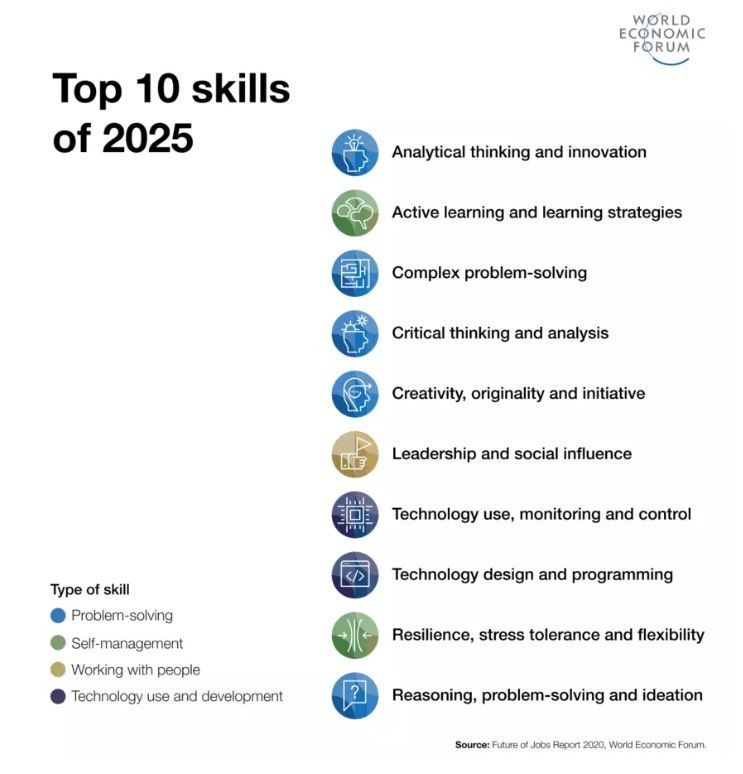
In 2020, the top most sought-after skill was creativity.
Why are employees expected to have analytical thinking and innovation skills? Why is creativity not enough?
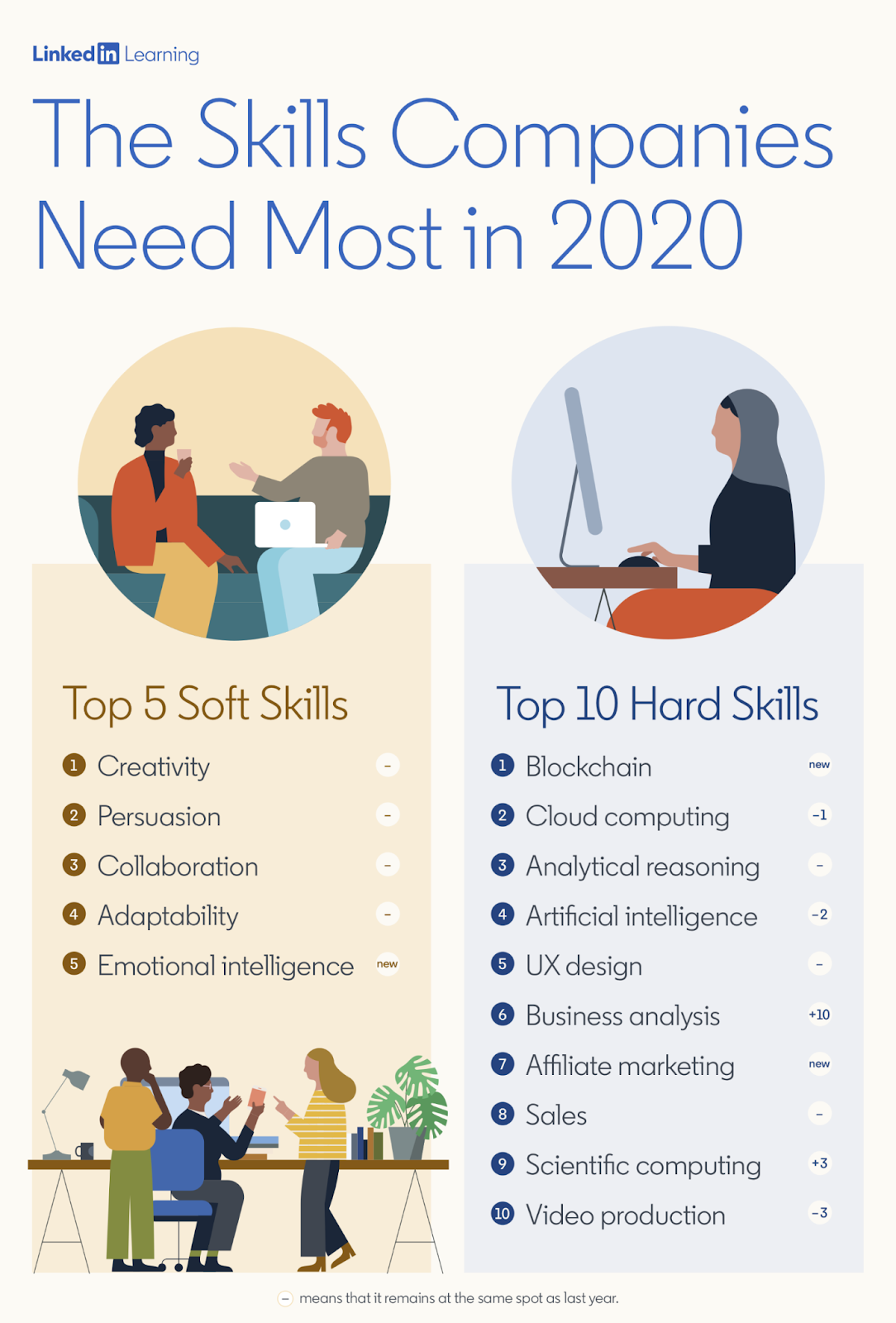
The World Economic Forum report answers this question with an in-depth list of key insights which I encourage you to read.
But if you want the short answer, here’s my conclusion.
The future of work is about automation and robots. The report found that by 2025, the time spent on current tasks at work by humans and machines will be equal.
While an AI software can do creative work (see the AI writing news or the AI doing movie trailers), software and automation robots cannot be innovative.
Innovation requires other skills besides creativity. Read on to find out what these skills are.
If innovation is not (only) creativity, then what is it? Is it a process? Is it a mindset?
First let’s establish the difference between creativity and innovation.
Creativity vs Innovation
On this subject, the best definition of innovation as opposed to creativity I could find is the following:
The key difference between creativity and innovation is that the first refers to generating a fresh and new idea, whereas the second implies initiating new service, product or invention to the market, which was not introduced before.
Creativity vs Invention vs Innovation
Let’s bring another term into the conversation, one that is commonly used to define innovation: invention.
Does invention equals innovation? And if it doesn’t, what’s the difference between invention and innovation?
To answer this question, here’s a great piece of content from Innoway, an innovation consultancy:
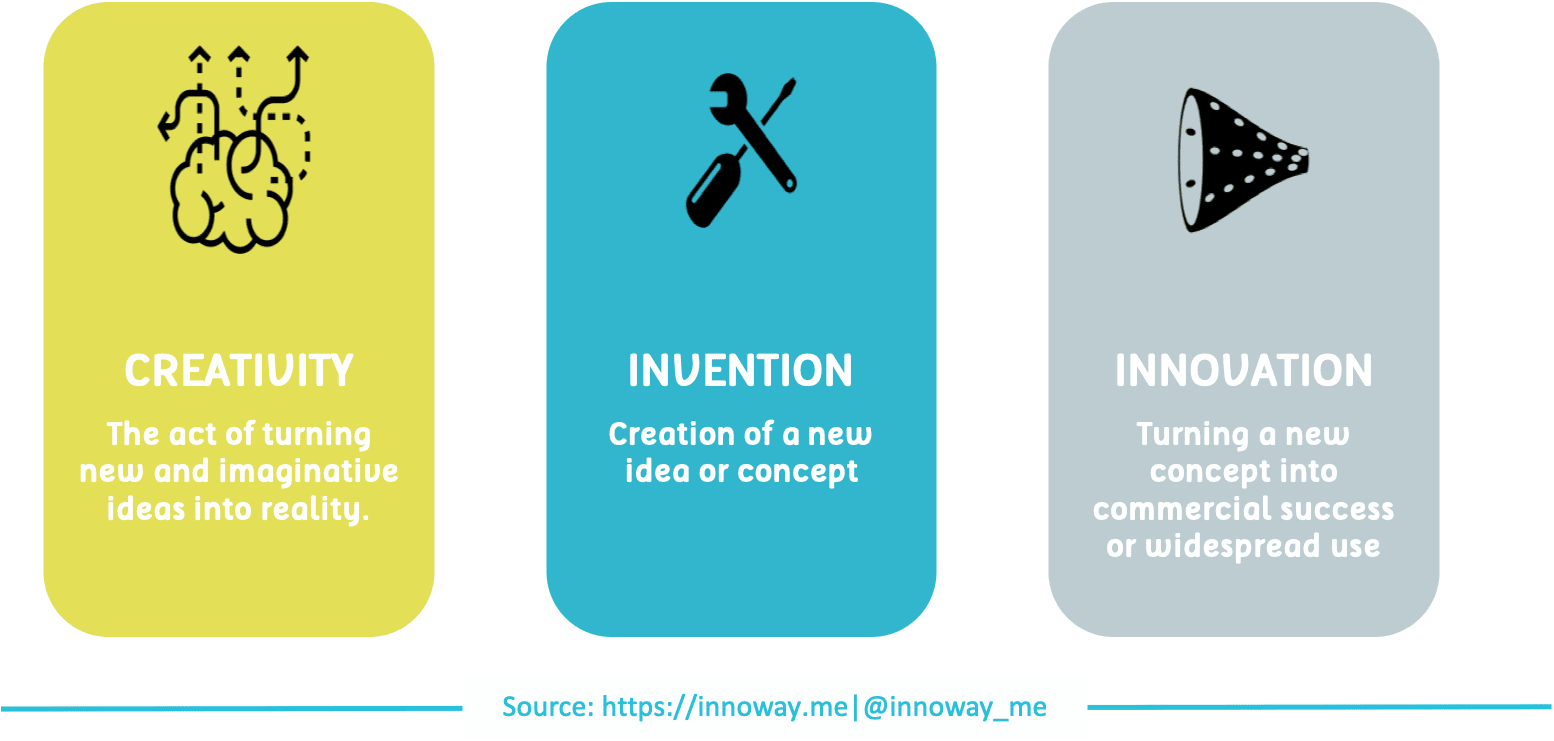
They do a great job of explaining the difference between creativity, invention and innovation.
Creativity is the art of turning new and imaginative ideas into reality.
Invention is the creation of a new idea or concept.
Innovation is turning a new concept into commercial success or widespread use.
Zaha Hadid’s amazing buildings are a testament to her creativity, but they are neither inventions, nor innovations.
Leonardo da Vinci, the famous painter was also a prolific inventor. Among his many designs was that of a helicopter which he called the Aerial Screw.
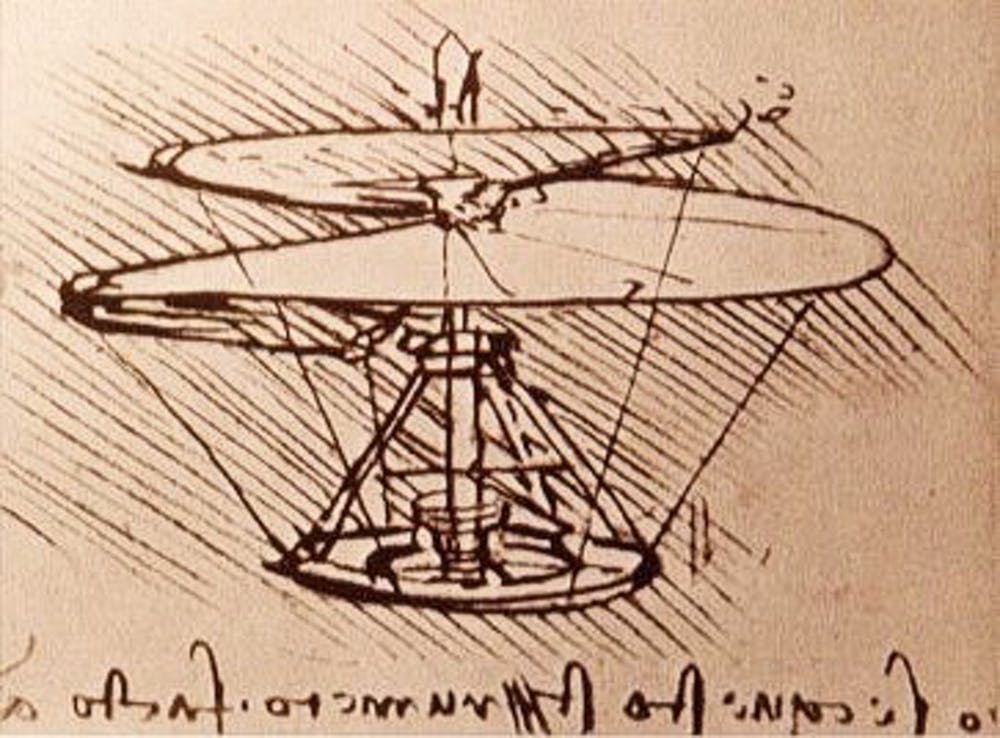
Leonardo da Vinci’s helicopter
If you look at da Vinci’s sketch dating back to the 1480s, you will notice a very strong resemblance with NASA’s Ingenuity Helicopter which took its first flight on Mars earlier this month.
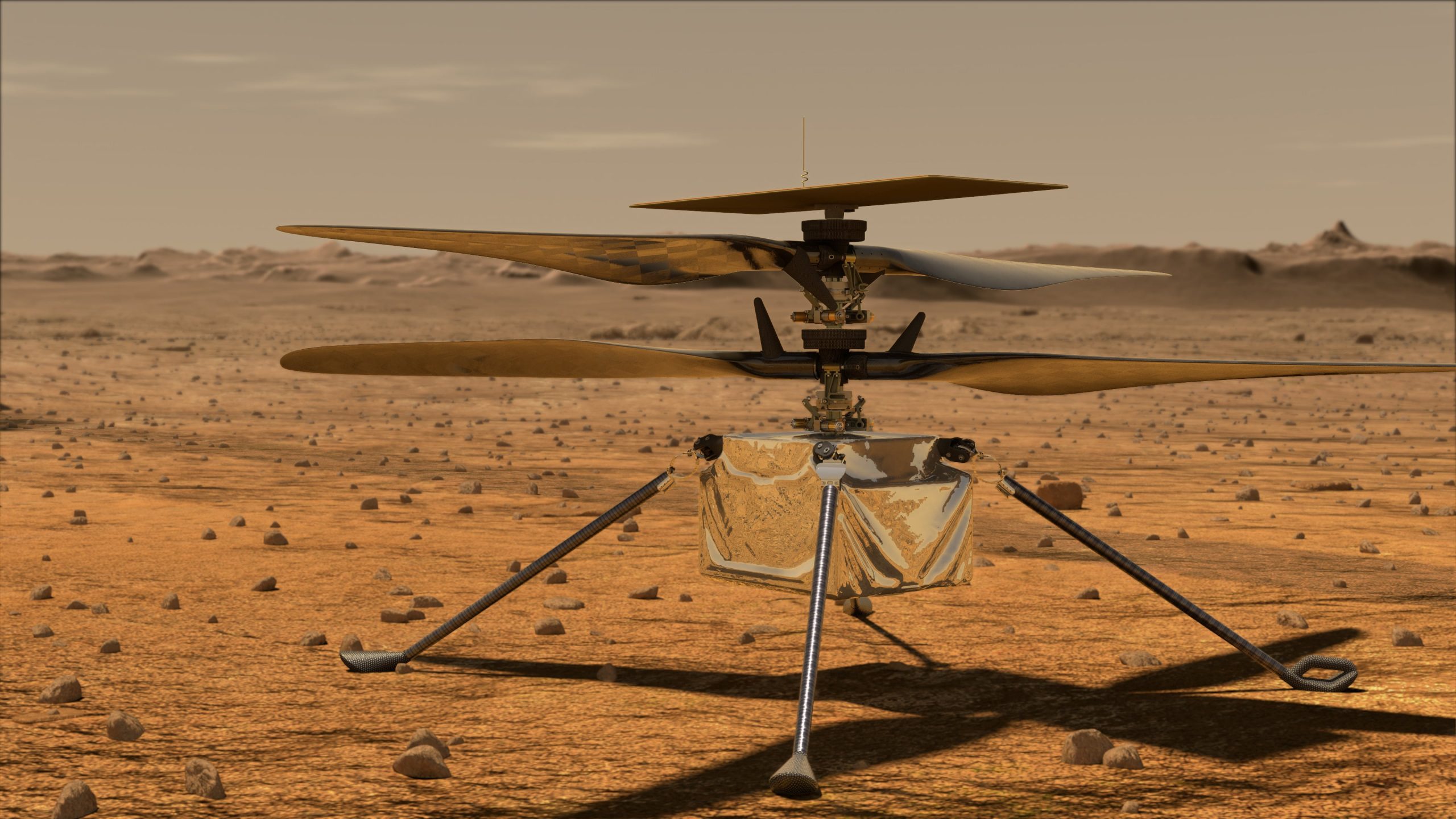
Ingenuity helicopter, source: NASA
Taking inspiration from Leonardo’s concept, the engineers at NASA were prompted to solve a series of challenges related to Mars’ atmosphere. The Red Planet’s atmosphere is 99% less dense than Earth’s which makes it difficult for the helicopter to achieve enough lift.
The Aerial Screw is an invention while the Ingenuity is an innovation.
What is innovation?
Innovation sits at the intersection of customer desires, technology and business opportunities.
Innovation is defined as something new to the market that creates economic and customer value through research, creativity and invention.
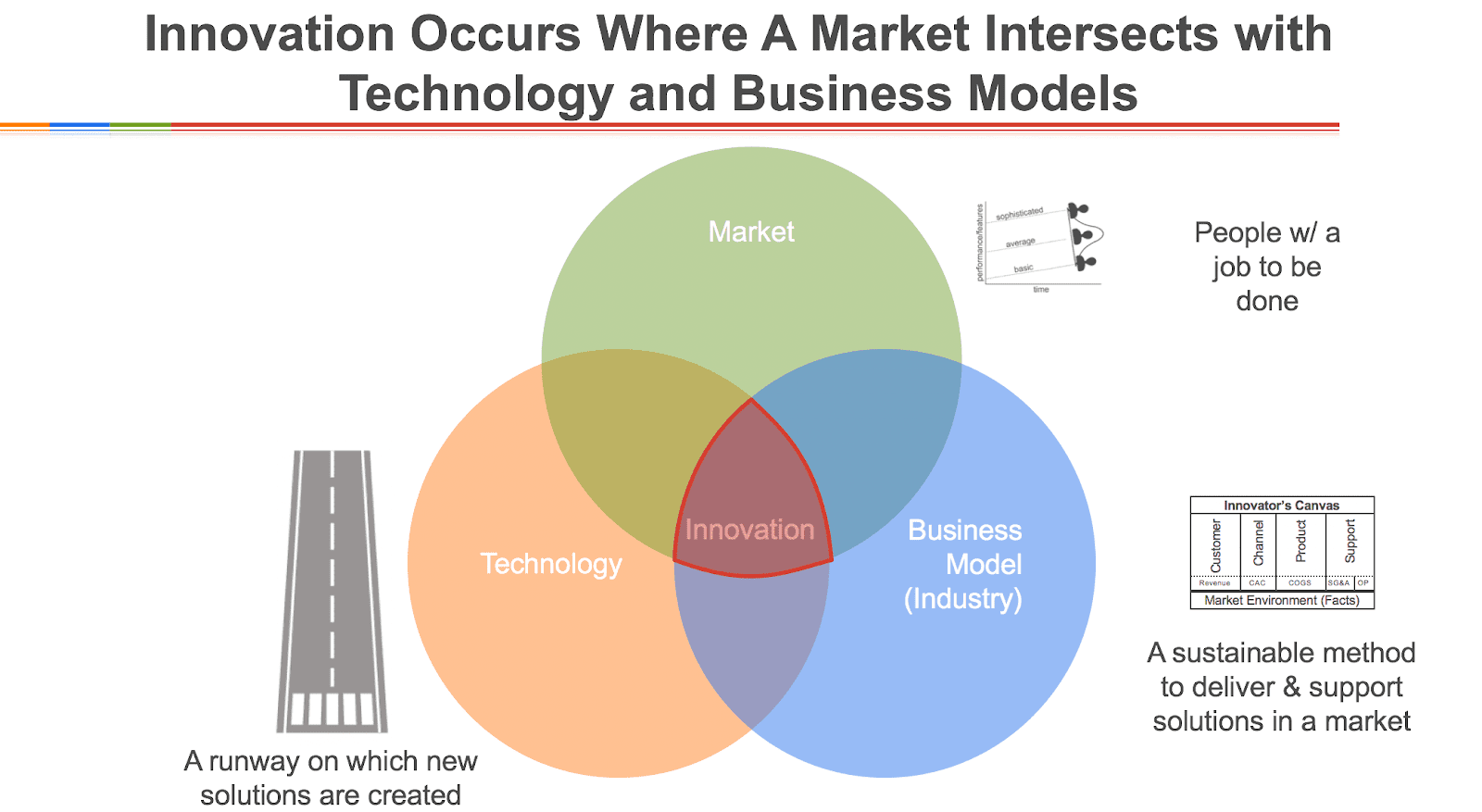
source: ignitionframework.com
Innovation occurs where a market intersects with technology and business models.
The market is composed of people with a job to be done. The business model is a sustainable method to deliver and support solutions in a market. Technology is a runway on which new solutions are created.
Innovators start with the market in mind and what the customers want or need.
Technology is not a goal, it’s a means to an end. Innovators ask themselves How can I use technology to address an unmet need in the market? What technology-driven solution can I come up with that provides customers with a solution to their problems and revenue for the company?
This is what innovators think about when they wake up in the morning and when they go to sleep at night.
The 4 types of innovation
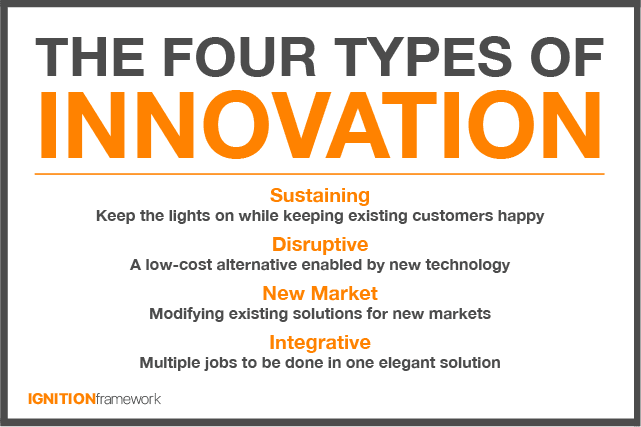
Jake Nielson, a marketing leader with 10+ years of innovation management experience came to the conclusion that there are 4 types of innovation:
- sustaining innovation;
- disruptive innovation;
- new market innovation;
- integrative innovation.
Sustaining innovation
Apple is an example of sustaining innovation. Since the first iPhone in 2007, the company has come up with new iterations of the iPhone every year. Every iteration had new features, improved functionality, beautiful design and innovations.
Disruptive innovation
Airbnb disrupted the hospitality industry. Uber disrupted the taxi industry. Netflix disrupted the DVD mail service. Amazon disrupted brick and mortar commerce. All four provide a better alternative enabled by new technology.
New market innovation
BMW has been manufacturing conventional cars since the early 1950s. Starting with the 1970s, the German car maker has been researching and testing electric cars. Today BMW electric cars are among the best in the market and the company is planning to offer plug-in hybrid versions of all its core-brand models.
Integrative innovation
MailChimp started out as an email provider for small businesses. The company’s email service was so successful that it became one of the most popular in the world. Listening to their customers’ needs, MailChimp expanded its services. MailChimp is now more than an email service provider, it’s an all-in-one marketing platform which empowers its users to build landing pages, create digital campaigns and leverage powerful insights. It supports small businesses to reach their marketing goals faster.
What type of innovation is your company developing?
Join the Conversation
We’d love to hear what you have to say.
Get in touch with us on our LinkedIn Page, Facebook Page, Twitter or TikTok.